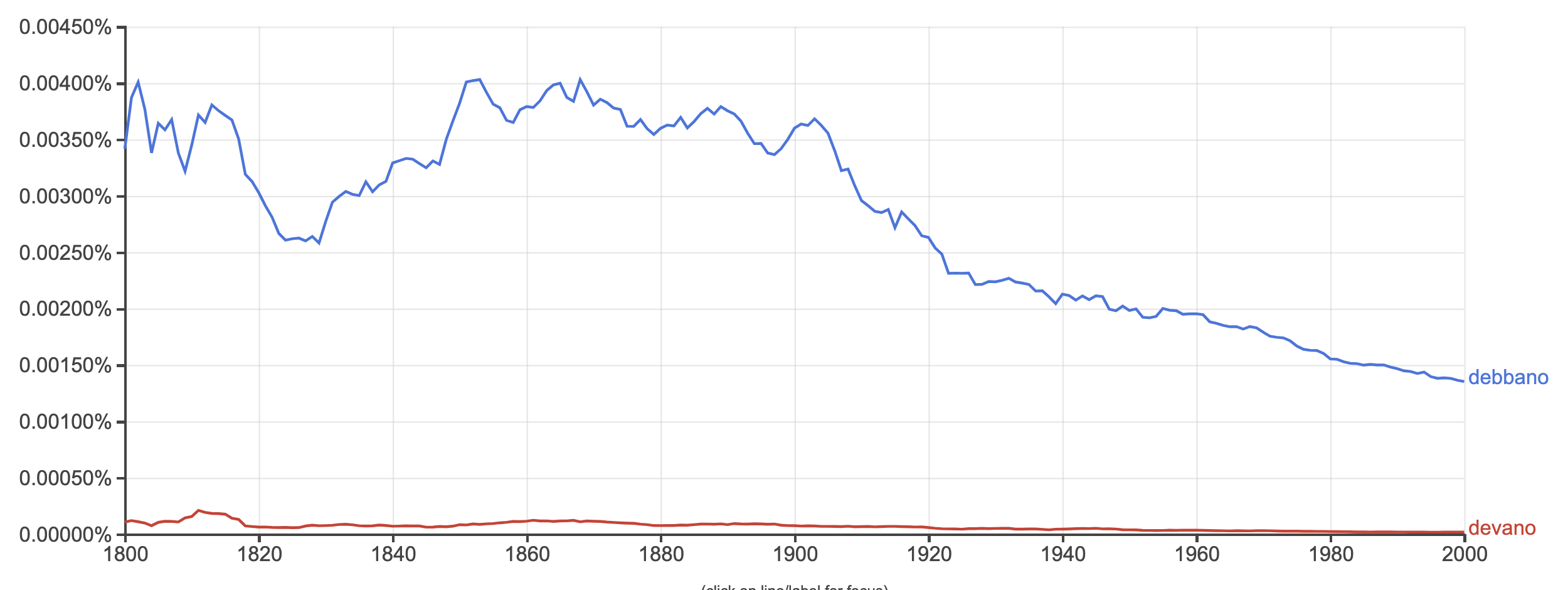As an Italian, devano is a rare, old-fashioned form, and I myself had to check whether it was recorded in a dictionary. So, yes, it's technically admissible but nowadays it sounds quite unusual. Presumably, your teacher aims at teaching you contemporary, usual Italian.
As an illustration, here is a graph comparing the occurrences of debbano and devano in Google Books Ngram Viewer corpus from 1800 to 2000:
(Debbano itself appearappears to be declining: this is possibly due to a general decliningdecline in the use of the subjunctive mood in some registers of Italian.)
